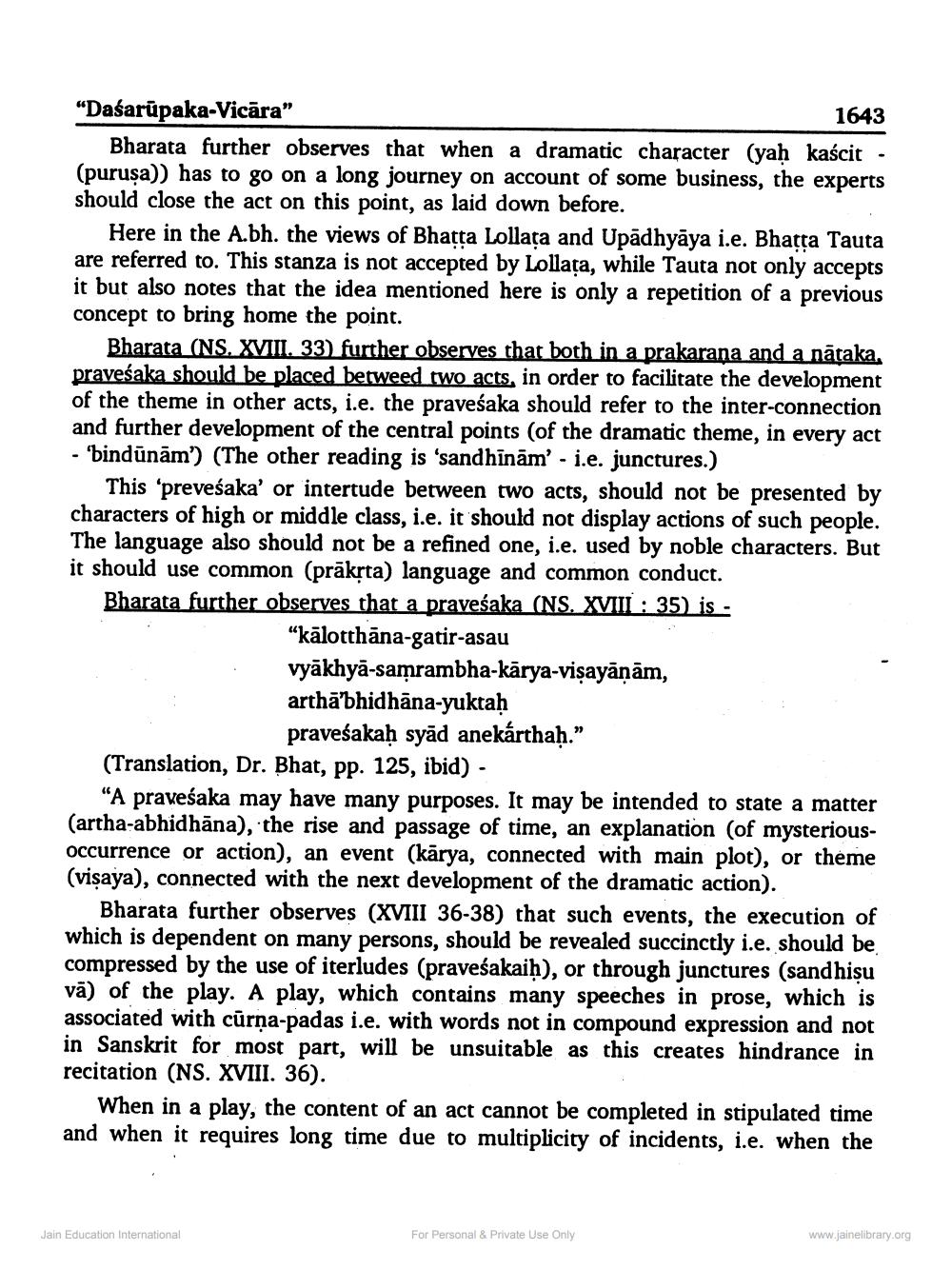________________
"Daśarūpaka-Vicāra”
1643 Bharata further observes that when a dramatic character (yah kaścit - (purusa)) has to go on a long journey on account of some business, the experts should close the act on this point, as laid down before.
Here in the A.bh. the views of Bhatta Lollata and Upadhyāya i.e. Bhatta Tauta are referred to. This stanza is not accepted by Lollața, while Tauta not only accepts it but also notes that the idea mentioned here is only a repetition of a previous concept to bring home the point.
Bharata (NS. XVIII. 33) further observes that both in a prakarana and a nātaka, praveśaka should be placed betweed two acts, in order to facilitate the development of the theme in other acts, i.e. the praveśaka should refer to the inter-connection and further development of the central points (of the dramatic theme, in every act - 'bindūnām') (The other reading is 'sandhīnām' - i.e. junctures.)
This "preveśaka' or intertude between two acts, should not be presented by characters of high or middle class, i.e. it should not display actions of such people. The language also should not be a refined one, i.e. used by noble characters. But it should use common (prāksta) language and common conduct. Bharata further observes that a praveśaka (NS. XVIII : 35) is -
"kālotthāna-gatir-asau vyākhyā-samrambha-kārya-visayāņām, arthā'bhidhāna-yuktaḥ
praveśakaḥ syād anekárthaḥ.” (Translation, Dr. Bhat, pp. 125, ibid) -
"A praveśaka may have many purposes. It may be intended to state a matter (artha-abhidhāna), the rise and passage of time, an explanation (of mysteriousoccurrence or action), an event (kārya, connected with main plot), or theme (visaya), connected with the next development of the dramatic action).
Bharata further observes (XVIII 36-38) that such events, the execution of which is dependent on many persons, should be revealed succinctly i.e. should be compressed by the use of iterludes (praveśakaih), or through junctures (sandhisu vā) of the play. A play, which contains many speeches in prose, which is associated with cūrna-padas i.e. with words not in compound expression and not in Sanskrit for most part, will be unsuitable as this creates hindrance in recitation (NS. XVIII. 36).
When in a play, the content of an act cannot be completed in stipulated time and when it requires long time due to multiplicity of incidents, i.e. when the
Jain Education International
www.jainelibrary.org
For Personal & Private Use Only




